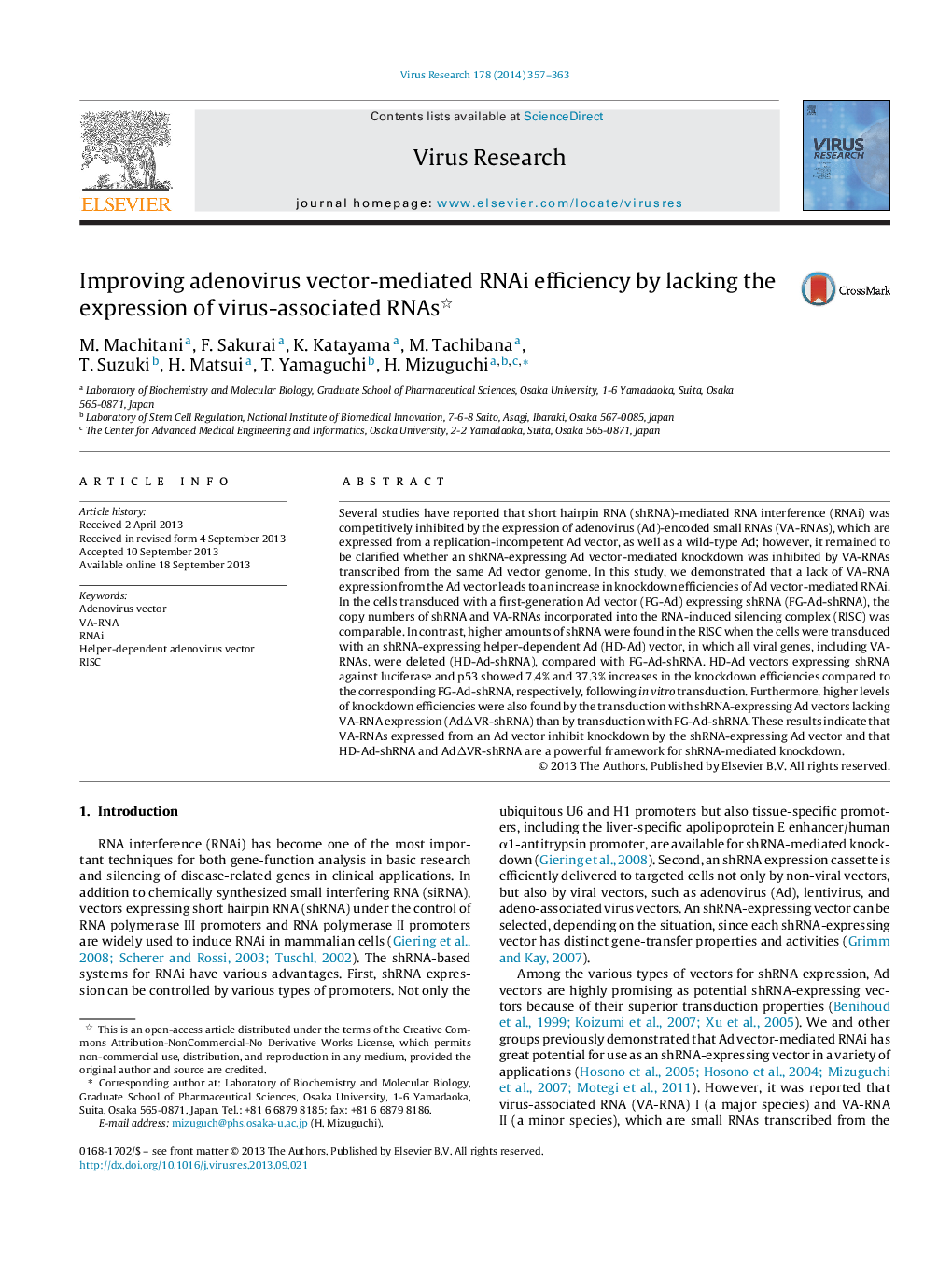| Article ID | Journal | Published Year | Pages | File Type |
|---|---|---|---|---|
| 6142689 | Virus Research | 2013 | 7 Pages |
Abstract
Several studies have reported that short hairpin RNA (shRNA)-mediated RNA interference (RNAi) was competitively inhibited by the expression of adenovirus (Ad)-encoded small RNAs (VA-RNAs), which are expressed from a replication-incompetent Ad vector, as well as a wild-type Ad; however, it remained to be clarified whether an shRNA-expressing Ad vector-mediated knockdown was inhibited by VA-RNAs transcribed from the same Ad vector genome. In this study, we demonstrated that a lack of VA-RNA expression from the Ad vector leads to an increase in knockdown efficiencies of Ad vector-mediated RNAi. In the cells transduced with a first-generation Ad vector (FG-Ad) expressing shRNA (FG-Ad-shRNA), the copy numbers of shRNA and VA-RNAs incorporated into the RNA-induced silencing complex (RISC) was comparable. In contrast, higher amounts of shRNA were found in the RISC when the cells were transduced with an shRNA-expressing helper-dependent Ad (HD-Ad) vector, in which all viral genes, including VA-RNAs, were deleted (HD-Ad-shRNA), compared with FG-Ad-shRNA. HD-Ad vectors expressing shRNA against luciferase and p53 showed 7.4% and 37.3% increases in the knockdown efficiencies compared to the corresponding FG-Ad-shRNA, respectively, following in vitro transduction. Furthermore, higher levels of knockdown efficiencies were also found by the transduction with shRNA-expressing Ad vectors lacking VA-RNA expression (AdÎVR-shRNA) than by transduction with FG-Ad-shRNA. These results indicate that VA-RNAs expressed from an Ad vector inhibit knockdown by the shRNA-expressing Ad vector and that HD-Ad-shRNA and AdÎVR-shRNA are a powerful framework for shRNA-mediated knockdown.
Keywords
Related Topics
Life Sciences
Immunology and Microbiology
Virology
Authors
M. Machitani, F. Sakurai, K. Katayama, M. Tachibana, T. Suzuki, H. Matsui, T. Yamaguchi, H. Mizuguchi,
